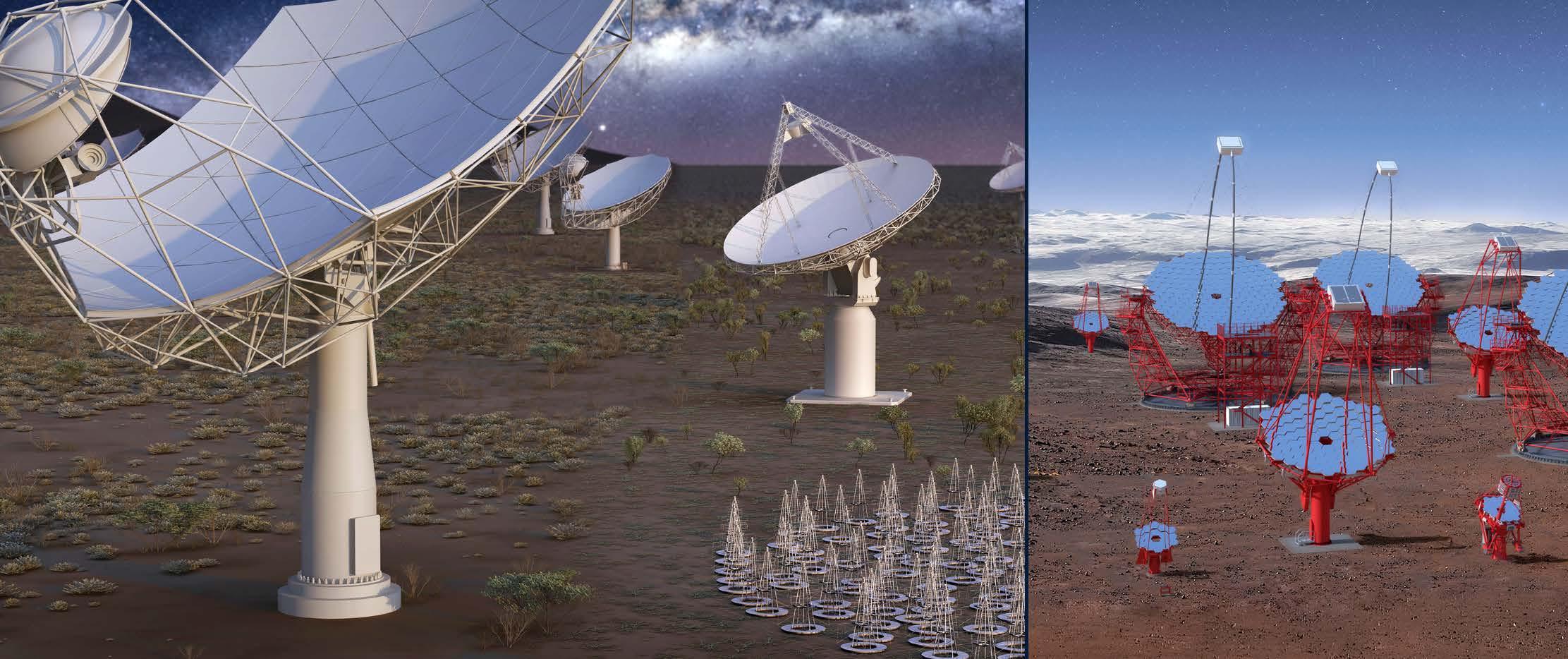
1 minute read
Recent SKA news
from Contact 03
A brief recap of the big stories covered by the SKA Comms team in recent months
A busy few months around the SKA world has led to some major news stories, starting with the successful System Critical Design Review in the second week of December (see our feature on page 18-19). The review of the SKA’s overall design, costing and planning marked the culmination of six years of work involving hundreds of engineers and scientists in 20 countries. Now all efforts turn to implementing the expert panel’s recommendations in order to prepare the SKA Construction Proposal.
On the governance front, Italy became the second country to ratify the SKA Observatory Convention in January. The text of the law passed by the Italian Senate outlines a financial commitment of 120 million euros over 10 years for the project. The Convention comes into force when five countries – including SKA hosts Australia, South Africa and the UK – have ratified.
In science news, an international team of astronomers including one of SKAO’s Project Scientists for the first time detected the dragging of space-time in a distant binary star system, something previously only measured around Earth with satellite experiments. According to Einstein’s general relativity, the rotation of a massive object drags the space-time in its vicinity. Using a pulsar orbiting a white dwarf, the team were able to detect for the first time this swirling of space-time around the fast-rotating object. Read more on this result on page 14.
The SKA Organisation also announced it will engage in closer collaboration with the Cherenkov Telescope Array Observatory (CTAO) under a new agreement signed by the two research infrastructures. Despite operating at opposite ends of the electromagnetic spectrum, there are a number of similarities between the two projects: both are large international collaborations, comprise two arrays on different continents, and have begun transitions on the governance front. The new Memorandum of Understanding (MoU) will facilitate greater sharing of knowledge and expertise in areas including engineering, science, technology and administration.

Artists’ impressions of the SKA (left) and CTA (right) antennas, which will operate in the radio and gamma-ray bands respectively. SKAO and CTA recently signed an MoU to facilitate greater sharing of knowledge and expertise in a number of areas.
Credits: SKAO / Gabriel Pérez Diaz, IAC/Marc André-Besel, CTAO










